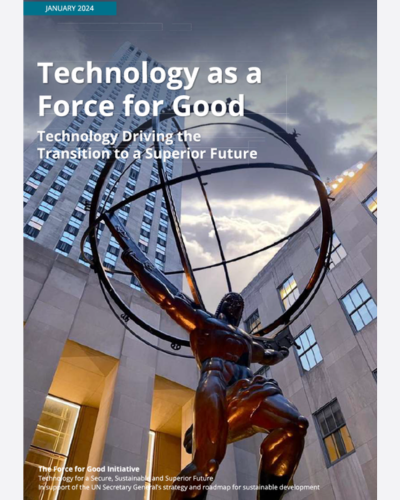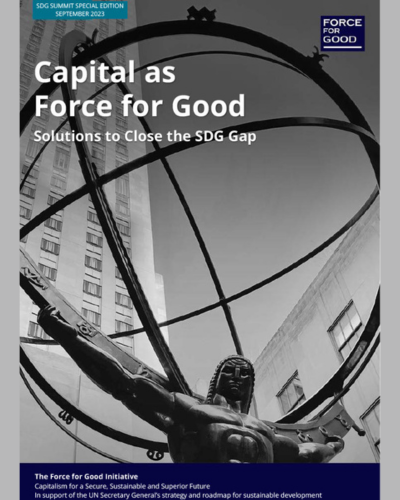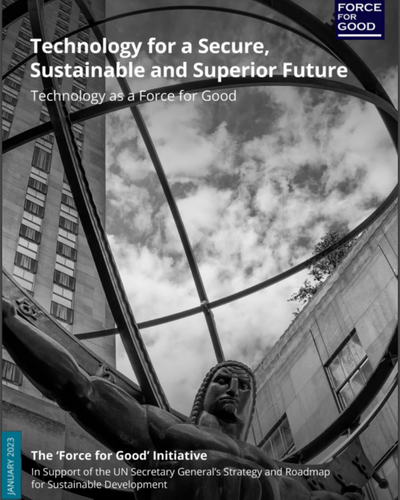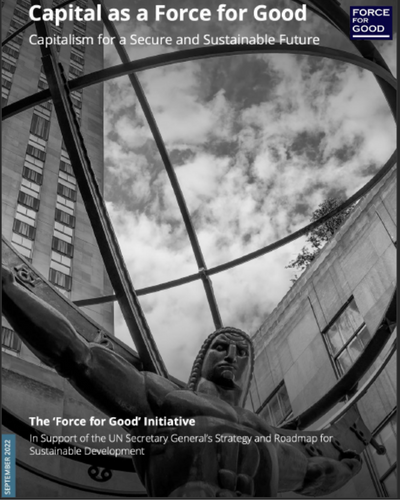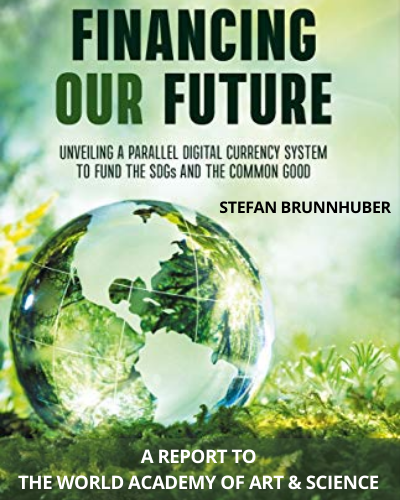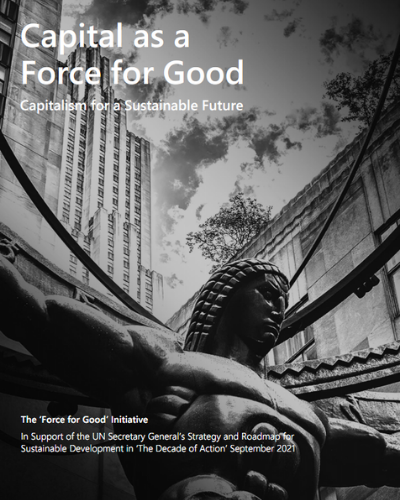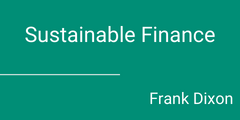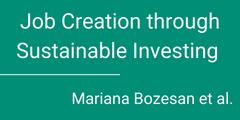Today we live in a world in which unparalleled wealth and productive capacity co-exist alongside unconscionable and totally unnecessary poverty and deprivation. At the same time, hundreds of millions of people are unemployed and several billion are grossly under-employed.
For the first time in history, the world possesses more than sufficient technology, financial capital and human capital to eradicate poverty from the globe. Yet, humanity continues to suffer from a plethora of unmet human needs. Our problem is not a shortage of capacity but a system that has short-circuited. It is not the failing of human beings that is responsible but the failure of economic theory, policy and practice.
“About $4 trillion circles the globe every day in search of lucrative short term speculative returns, producing very little of tangible value to human beings.”
The aim of this project is to explore innovative strategies and mechanisms to enhance money creation and redirect both public and private sector resources to promote equitable, sustainable human security and wellbeing for all.
WAAS Innovative Finance Initiatives
Tao of Finance
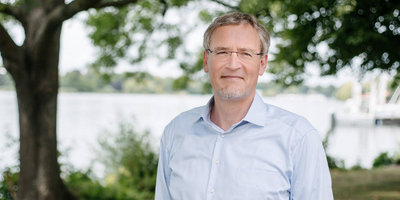
A WAAS Project that explores how to finance the huge multi-trillion dollar annual investment requirements for achieving the SDGs, with special emphasis on investments in human resources and environmental protection.
Force for Good
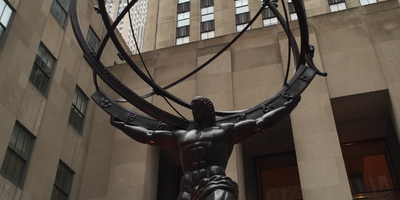
The initiative is designed to increase awareness of the finance industry’s engagement as a ‘force for good’ and to increase this and galvanize change in the broader financial sector and beyond for a sustainable future.
Special Bonds

Strategy to enhance funding for SDGs by the insurance and pension fund system through introduction of special public bonds with subsidized yields which reflect the true value and overall return to society of the positive and negative externalities associated with investments in the SDGs.
Integral Finance
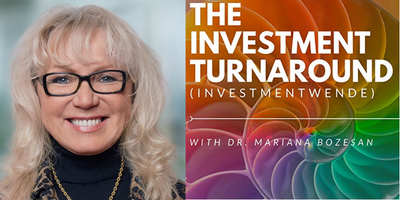
This is a series of Podcasts hosted by Mariana Bozesan on the need for reinventing finance and economy. This initiative showcases interviews with world renowned investors & scientists on the future of our financial systems.
Reports
Technology can provide the means to create a sustainable, secure, and superior world. It can help us finish the job of providing inclusion for all in finance, education, healthcare, housing, and dignified work across an increasingly technology enabled world.
Achieving the SDGs by 2030 is possible with the right will, mobilization, and comprehensive implementation of key solutions and capital, even surpassing the targets.
This report is a well-researched assessment of the challenges confronting humanity and proposes realistic approaches to addressing the most critical of them.
This report to the World Academy of Art and Science unveils a Parallel Digital Currency System to fund the SDGs and the Common Good.
This report to the World Academy of Art and Science explains how to become a successful exponential investor and self-actualize through Integral Investing.
Featured Events
Global Referendum: Voice for Humanity
Concerted action is urgently needed to strengthen the multilateral system, promote worldwide cooperation between nation-states, and address the full spectrum of human security issues posed by the COVID-19 pandemic, accelerate implementation of the SDGs, and act expeditiously to avoid the existential threats posed by climate change.
Leadership for financing implementation of the SDGs
In light of the recent developments, the Sustainable Development Goals are more important than ever. The hesitant and slow implementation and financing of the SDGs derives from systemic issues. The financial resources exist, but they need to be redistributed. Money must be pulled away from fossil fuels and steered towards sustainable sectors.
Financing System Change
The COVID-19 pandemic, mass protests and other disruptions show that systems are in the process of changing. A whole system approach is essential for large scale system change such as economic reform. System Change Investing is a total systems approach addressing the root causes which encourage harmful corporate behaviour.
Addressing Global Challenges
Banks today act merely as deposit taking institutions and agents for vested financial interests. Finance needs to be relevant and integrated with the real economy and evolving social needs. Our approach to designing solutions should take into account diversity, mobility and most importantly, an interdisciplinary approach.
Business and Finance
Civil society movements show that youth are dedicated to various social causes such as human rights, environmental protection and equality. It is our responsibility to create new curricula in economics, social sciences, and management so our youth have the academic support needed to translate their ideals into action and accomplishment.
Transforming the Future of Money
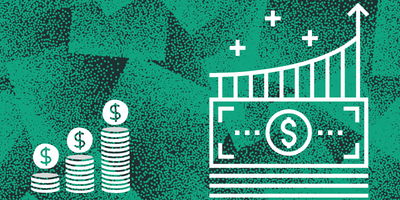
Money is a unique human invention, a powerful instrument for promoting sustainable development and wellbeing. But the global monetary and financial system misconstrues its fundamental purpose and role in society. This roundtable called for a new financial paradigm based on a fundamental change in consciousness and values.
Future Capital: Financing Global Development

World Academy of Art & Science and Future Capital Initiative collaborated to convene a roundtable discussion at World Bank headquarters in Washington DC to explore ideas and practical strategies to enhance the effective use of money, financial markets and other forms of capital to promote equitable development and wellbeing globally.
Published Articles
More articles on Money and Finance –
Escape from the Combined Crisis: The Role of Parallel Electronic Currency, Dragan Djuricin – November, 2020
A Note Reconsidering ‘A Theory of Wealth Distribution and Accumulation’: Perspective on Uncertainty, Joanilio Rodolpho Teixeira, João Gabriel de Araujo Oliveira – September, 2020
Information Asymmetry and the Coase Theorem Fallacy, Radmilo Pešić – September, 2020
Economics as a Science – or viewed from the perspective of scientists in other fields, Joaquim Vergés – July, 2020
Global System Change: A Whole System Approach to Addressing COVID-19 and Achieving the SDGs, Frank Dixon – July, 2020
Innovative Financial Engineering to Fund the SDGs A WAAS Initiative, Stefan Brunnhuber, Garry Jacobs – June, 2020
Leadership, Human Needs, and Values: The Importance of World Constitutionalism, Winston P. Nagan, Samantha R. Manausa – June, 2020
The New Economy: A Financial Climate for Climate Finance, Yehuda Kahane – June, 2020
Overcoming the Global Trilemma: New Monetary Politics in the Anthropocene, Stefan Brunnhuber – October, 2019
Contribution of the Economy to Emerging Global Governance, Erich Hoedl – May, 2019
Towards a New Economic Theory of the State, Ruslan Grinberg, Alexander Rubinstein – May, 2019
Global Governance, Human Needs, and Values, Winston P. Nagan, Brittany M. DiCaprio – October, 2018
The Context and Values Inherent in Human Capital as Core Principles for New Economic Theory, Winston P. Nagan, Samantha R. Manausa – May, 2018
On the Monetarized and Non-monetarized Contributions to National Wealth, Marta Nešković, Nebojša Nešković – May, 2018
Cryptocurrencies & the Challenge of Global Governance, Garry Jacobs – May, 2018
Book Review of Come On!: A Report to the Club of Rome: New Frontiers, Michael Marien – May, 2018
Transforming Education for a Transition into Human-centered Economy and Post-normal Times, Elif Çepni – October, 2017
The Political Economy of Neoliberalism and Illiberal Democracy, Garry Jacobs – October, 2017
Social Democratic Constitutionalism, New Economic Theory, and the Dangers of Neoliberalism’s Attacks on Rational Government Regulation, Winston P. Nagan,
Craig Hammer – October, 2017
The Market Myth, Tomas Bjorkman – May, 2016
Socioeconomic Challenges and Crises: Brazilian Illustration and the Search for a New Paradigm, Joanilio Teixeira, Rodolfo Teixeira – May, 2016
Reforming Electronic Markets and Trading, Hazel Henderson – November, 2015
Saint Catherine and the Free Market System; The (Historic) Roots of the Current Crisis, Gerald Gutenschwager – March, 2015
Fictitious Capital and the Elusive Quest in Understanding its Implications: Illusions and Paradoxes, Joanílio Rodolpho Teixeira, Paula Felix Ferreira – October, 2014
Book review — Money and Sustainability: The Missing Link, Garry Jacobs, Ivo Šlaus – October, 2012
Money, Debt, People and Planet, Jakob von Uexkull – October, 2012
Grossly Distorted Picture: GDP Still Misleading, Hazel Henderson – April, 2011
Transforming Finance Group’s Call Recognizes Finance as a Global Commons Ethical Markets, Hazel Henderson – October, 2010
Is Our Monetary Structure a Systemic Cause for Financial Instability? Evidence and Remedies from Nature, Bernard Lietaer et al. – February, 2010
